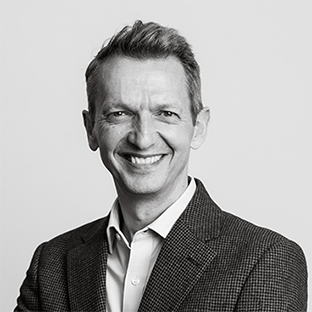After 32 years at the Bank of England, Andy Haldane has joined the RSA as its new Chief Executive. Rachel O’Brien spoke to him about his vision for the RSA
Rachel O’Brien: You were a public servant at the Bank of England for over 30 years. How does it feel to be moving not just to a different sector but also to a new organisation and team? Does this move present new challenges for you in terms of leadership?
Andy Haldane: Let me give the classic economist’s answer: yes and no.
Yes, there are plainly new challenges in moving to any new organisation. There are also great opportunities and it is precisely those that attracted me to the RSA in the first place. These include the chance to have social impact across a much wider number of fronts, on the signature issues of the day, whether that is the new world of work, or training, or education, or the environment. And doing so within such an inspiring entrepreneurial environment at the RSA.
No, in the sense that my whole career has been spent in public service, tackling economic and social issues; drawing together the combined might of the public, private and civil society sectors; using the combination of analytical excellence, intellectual leadership and on-the-ground implementation to design, drive and deliver radical change. In that sense, there is more that unites the Bank of England and the RSA than divides them.
O’Brien: You have spoken about the importance of charity and how the sector, and all that it does to contribute to society, is not appropriately recognised. How do you think this can be remedied?
Haldane: For me, the crucial role of civil society has been neglected for too long, in ways that have exacerbated fault lines in our economies and societies. The secret to societal and economic success, historically, has come from the partnership between the public, private and civil society sectors. Recent experience with the design and delivery of the vaccine programmes has illustrated this point once again. Yet we have structurally under-invested and under-appreciated the importance of charity, community and civil society in driving success. This has caused subsidence in what is sometimes called the Third Pillar. That subsidence has in turn shown up in rising economic and social disparities, whether financial or educational, and in health and happiness.
Closing those disparities requires, among other things, a restoration of the Third Pillar. This needs to range from the mundane but important (such as how we measure the sector’s societal contribution) right through to the institutional and structural (such as how we recognise and reward the massive voluntary contributions citizens make).
O’Brien: You set up Pro Bono Economics to help charities and were involved in the RSA’s economic inclusion work. To what extent do you think economics itself needs to change in relation to not just engaging the public but asking different questions arising from climate change, wellbeing and so on? And do you see a role here for the RSA?
Haldane: Yes, economics needs to change and it is, I think, changing for the better. Both the global financial and the Covid-19 crises have prompted a rethink and a refresh of the economics profession and its approaches. Part of that reformation will involve economists engaging far more expansively than in the past, whether when working across disciplinary boundaries or when working with citizen audiences, as the work of the RSA has demonstrated. But we make a mistake in thinking this is just a change programme for economics. Tackling the issues of today will require a reboot that encompasses every discipline and every sector. That is what system change means.
O’Brien: You join the RSA at a hugely challenging time for many individuals and institutions. The pandemic has changed us all, both further exposing deep divides and what binds us. For many there is a deepening sense of their own powerlessness. What role do you think the RSA can play in this context?
Haldane: The pandemic has created a renewed sense of agency and community-mindedness among a great many people. One of the ways we can build back better (and fairer and kinder) is to nurture the social capital that the Covid-19 crisis has helped create. The RSA, with its 30,000 Fellows and global reach, has a huge role to play in ensuring communities have the voice and the agency they need to achieve this rebuilding.
Recently, I spoke about ‘community capitalism’, a model of our economy and society that puts communities and civic institutions centre stage. Whatever we wish to call it, this is the model for the future: a new localism. And I’d like the RSA to be in the vanguard of that reformation of thinking and practice through its own research and through its changemaking community of Fellows.
O’Brien: With this in mind how does the RSA need to change? For example, the RSA combines being a think tank, focused on policy change, a membership organisation focused on motivating others, and is also concerned with practical innovation. How do you see these elements developing and do you think the RSA needs to prioritise one model?
Haldane: The power and the uniqueness of the RSA come precisely from its capacity to meld together these three elements. Think tanks, member organisations and innovation hubs are ten a penny. No one else combines the three. That unique blend of these assets is what has enabled the RSA to effect social change in the past and they will be the key in doing so in
the future too.
Large and lasting social change comes from coupling the most able minds with the most dexterous hands, academic rigour with entrepreneurial energy. The world does not need more hand-wringing about the present; it needs a sense of vision and optimism about the future. The RSA should be helping to paint a picture of how society could be; this is an act of imagining. And it then needs to set about creating that future in practice, on the ground.
O’Brien: The RSA has a long and proud history but – like the Enlightenment that shaped its foundation – it remains a relatively elite organisation. Do you see this changing under your tenure and, if so, how?
Haldane: We need to be careful with labels. In a great many respects, the RSA is as open and inclusive as any social change organisation I can think of, by dint of its Fellowship, its focus on community action, its approach to system change. But, of course, in everything we do we need to continue to champion openness and diversity, in all of its senses. And, like every other organisation on the planet, we have further to go on those fronts. As one example, there is a lot further for us to go in reaching a younger and more diverse set of Fellows. I hope these new initiatives we are putting in place can help achieve that.
O’Brien: At the Bank of England, you visited many ‘left behind’ communities, listening to what they had to say. You are now advising the government on its levelling up agenda. Could you say a bit about what you learned from this process and what you think levelling up means? Is this a new narrative on inequality or something else?
Haldane: Yes, I spent several years before the pandemic visiting the UK’s less well-performing parts, speaking to local people about the local challenges they face. It was one of the most enriching professional experiences of my life. Among many other things, it taught me the importance of active listening, which is exhausting and rewarding in equal measure.
Levelling up is for me about three things. First, it is about economic prosperity: unleashing the potential currently too often constrained in the less well-performing parts of the UK. Second, it is about social justice: ensuring greater equality of opportunity in access to good work, education, healthcare and the like. And third, it is about political legitimacy: giving people, their families and communities sufficient agency over the decisions that shape their lives.
That is why it has been a personal passion of mine for 40 years.
O’Brien: One of the central programmes at the RSA is around the future of work. Recent times have highlighted the importance of some neglected areas of ‘key workers’ and the lack of resilience and recognition some sectors face. What do you think we need to learn from this and what can be done?
Haldane: The Covid-19 crisis has been a wake-up call for us all when it comes to recognising what and who really matters. The importance of family, friends, communities, charities, that civil society pillar I spoke of earlier. But also the importance of the state in protecting individuals and businesses from uninsurable events – the public sector pillar – and the importance of those key workers and businesses who have been essential for the effective functioning of our economies and societies, the private sector pillar.
As after the global financial crisis, the Overton window is now open for us to rethink how we value, reward and make resilient those essential activities and jobs. This is broader than the future of work. It is also about the future of business, the future of government and the future of civil society. Each needs to be re-imagined, not individually but as part of a system whole. That, distinctively, uniquely, is where the RSA can play a leading role.
Rachel O’Brien is a consultant, editor and writer who has worked in the area of criminal justice since 2007
Related articles
-
Earth Day: why it needs to be every day
Comment
Phillip Ward
This year’s Earth Day focuses on plastic pollution. It’s a massive problem that must be addressed, but we need to go beyond one-day initiatives to instil a sense of urgency in responding to all the issues we face.
-
Making the most of your late career
Comment
Ann Thorpe
How do you harness your potential in the last chapter of your career? Ann Thorpe explains how the Late Career Alliance could help to craft your career narrative, impact and legacy.
-





Be the first to write a comment
Comments
Please login to post a comment or reply
Don't have an account? Click here to register.